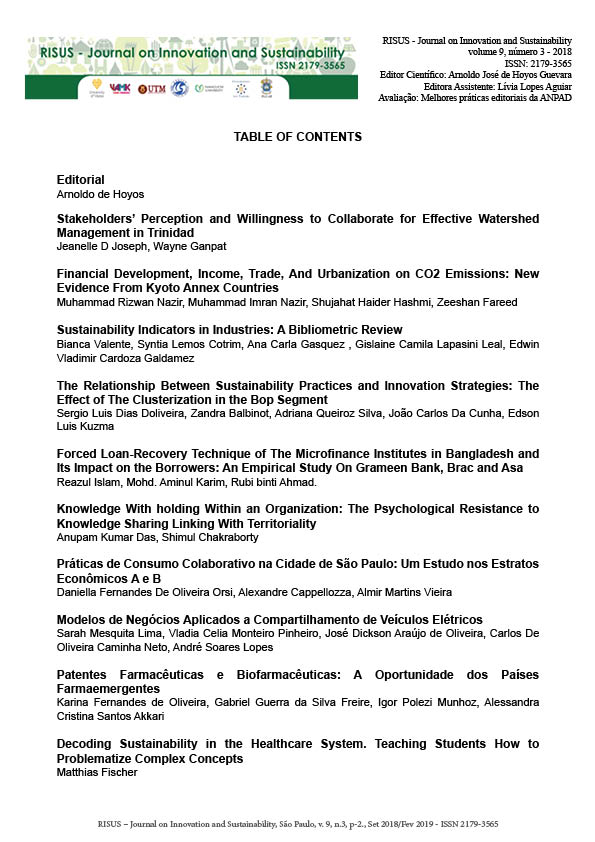STAKEHOLDERS’ PERCEPTION AND WILLINGNESS TO COLLABORATE FOR EFFECTIVE WATERSHED MANAGEMENT IN TRINIDAD
DOI:
https://doi.org/10.24212/2179-3565.2018v9i3p3-16Keywords:
watershed management, stakeholders, perceptions, collaboration, TrinidadAbstract
Proper watershed management is important for several reasons; the latest, and maybe most important, being to help mitigate climate change impacts. For countries with small landmasses and burgeoning populations, watersheds are increasingly at risk of being negatively impacted. The environment and water supply are particularly vulnerable if no actions are taken to manage them properly. This study sought to understand the perceptions of the various stakeholders who interact with the largest and most important watershed in Trinidad; their perceptions of the problems, the causes of the problems and possible solutions. It also investigated their willingness to collaborate on action plans to manage the watershed. A purposive sample of 266 respondents from four stakeholder groups was selected and interviewed using a structured questionnaire; comprising in the main of three perception scales and a modified Wilder Collaboration Factor Inventory. The latter is used to assess stakeholders willingness to collaborate. ANOVA results showed that there were similarities in perceptions to 5 of the 10 identified problems, 7 of the 18 possible causes and 6 of the 10 solutions presented. Such results suggested that there were opportunities for positive intervention and 21.3% of the stakeholders expressed a high level of willingness and a further 69.5% a moderate level of willingness to collaborate on community activities geared toward addressing water management issues. Recommendations included; increased community education on watershed importance, more constructive dialogue among stakeholders to achieve better agreements on the watershed issues and increased engagement with institutional stakeholders who are key to fashioning developmental plans for the watershed.Downloads
Published
2018-10-26
Issue
Section
Papers
License
This Journal is licensed under a Creative Commons Attribution-Non Commercial-No Derivers 4.0 International license.
1.The author (s) authorize the publication of the article in the journal;
2.The author (s) warrant that the contribution is original and unpublished and is not in the process of being evaluated in other journal (s);
3. The journal is not responsible for the opinions, ideas and concepts emitted in the texts, as they are the sole responsibility of its author (s);
4. The editors are entitled to make textual adjustments and to adapt the articles to the standards of publication.


